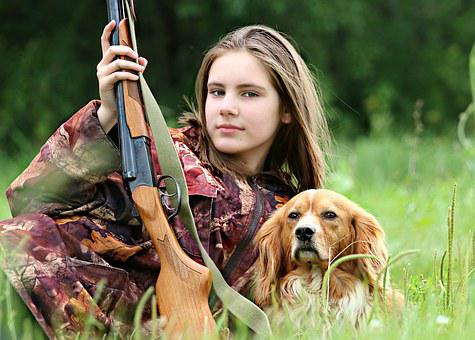Deer Hunting for Kids: 7 Tips for Taking Children Hunting
Hunters are passionate about the sport they practice. Hunting could mean a lot to you. Oftentimes, hunting is passed down as a family tradition. Or it’s an activity that you do to bond with friends. Hunters might even practice the sport by themselves to get closer to Mother Nature.
But hunting is a dying sport. Despite all the love hunters have for the activity, it’s decreasing in popularity across the nation.
Taking your children hunting could be enough to preserve the sport. At least it’s enough to inspire someone else’s love for hunting and its benefits.
Why You Should Take Your Kids Hunting
Some parents might be hesitant about taking their kids hunting. Hunting has a lot of benefits for children and their character.
Hunting could help kids learn responsibility. You have to manage yourself out there in the field and that sense of responsibility could transfer into the real world.
Kids learn about teamwork on the field, too. They learn about doing their part and helping others. It’s a great bonding activity for you since you’re out on the field working as one unit.

Most importantly, hunting could be great for mental health. It lets us unplug, literally and figuratively. Taking a step away from electronics and the real world could do wonders for the mind. Stepping out for a bit could also instill a love and appreciation for Mother Nature.
Read on for 7 tips for taking kids hunting.
1. See if They’re Ready
You need to know if your kids are ready to go hunting before you take them. It’s important to identify if your child is showing an interest in hunting. You could ask them about it, or you could look for other cues.
Kids that are eager to go hunting may ask a lot of questions about the sport, seem interested when you go hunting, or tell you.
But it’s also important to identify when they’re mature enough to go hunting. If you don’t think they can handle it, then let them know that they have to wait a bit longer and have them help you with hunting-related tasks instead.
Once they’re ready, then you have to make sure they’re legally allowed to hunt. Laws differ by state so click here to find your state laws and any necessary information.
2. Go Over Expectations
Tell them what to expect on their first hunting adventure. Where will they be hunting? Will they be ready to take a shot or will they wait? What kind of gear will they be using?
Let them know that hunting is a sport that requires patience and dedication.
And ask them about their expectations. What do they want to do and is it realistic/safe?
3. Prepare Them
You have to prepare them with the right gear. But you also have to prepare them mentally. Let them know what they’re going to see and what might happen if things go wrong. It’s better to tell them about everything that could go wrong instead of having it happen without a plan.
4. Reiterate Safety
Safety is key to hunting. Especially with kids. You develop hunting safety, but it’s important to lay out some groundwork.
- Explain that they should never stand in front of a gun. Act like it’s always loaded.
- Don’t wander off on your own.
- It’s important to always wear orange.
- Never take a shot unless they’re 100% certain about the target and its surroundings.
- Be aware of your own surroundings. Look up, down, and around.
5. Don’t Push Them
Don’t push them to do anything they’re not ready for. That includes hunting itself. It could push them away from the sport and discourage them from ever trying it again.
\ If you want them to take a shot and they’re not ready for it, then don’t pressure them. If they don’t want to be involved in the field-dressing process, then they shouldn’t have to be.
It’s important to know what they’re comfortable with doing and what they’d rather avoid. At least for the time being. On this trip, they might be hesitant to try some things out. But on the next hunting trip, they might be really excited to do what they used to be afraid of.
6. Listen to Them
Your child might be very vocal during the hunting trip. It’s important to listen to them and their needs. What are they saying? What do they want?

If they need to go to the restroom, try to make it happen. If they want a snack, have something to offer them. Even if they want to take a toy, then it should be allowed.
It’s especially important to listen when they talk about their emotions. If they tell you what they’re feeling you could better understand them and their needs. You could have a better understanding of their feelings regarding hunting.
It’s important to validate their feelings. If they feel sad about getting a kill, explain to them that it’s okay to feel sad but that this is just a part of the cycle of life. If they’re afraid, then let them know that feeling afraid is okay but they can overcome fear and get it done.
7. Make it Fun
Kids love having fun. Make hunting fun for them! Try to make little games for them to do while waiting in a spot. Or watch other animals whenever you have an opportunity.
Being outdoors could be a ton of fun in itself. Let them run around in a safe environment and explore.
Final Thoughts
Hunting could be a ton of fun for everyone involved. It’s important to gently introduce your kids to the sport and make sure they have a good time doing it.
With enough time, patience, and dedication, your child will grow into an avid hunter who’s ready to pass down the family tradition.

